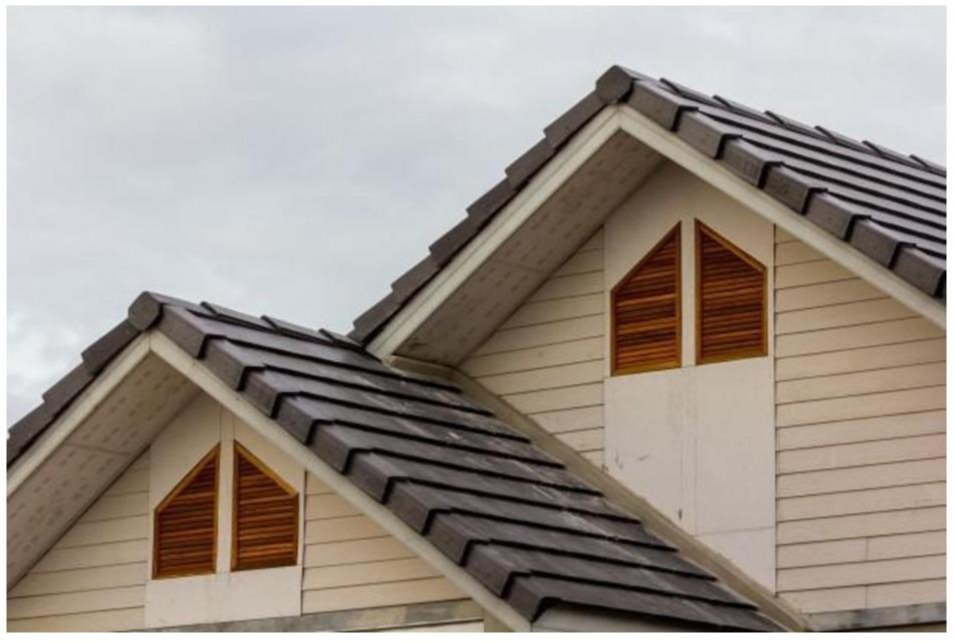Table of Contents
Your home’s roof protects you from water, hail, wind, extreme heat, and ice and stops UV rays from getting in. If something goes wrong with it, you can get leaks that result in structural damage and expensive repairs. There’s a lot of conflicting information about roofing materials, and it can be hard to figure out what you should buy for your house.
When you invest in something as important as your roof, it pays to do some research beforehand and consult professional roofers at Colony Roofers. Read to learn why roofing materials matter.
Quality Roofing Improves Your Home’s Value
When you’re looking to purchase a home, you’ll want to consider its value. A great-looking house with a poor roofing system can lose you money when it comes time to sell. On the other hand, a quality roofing system will help increase your property’s value and makes it easier for you to sell in the future if that’s what you wish to do.
A good roof can add up to 40 percent or more to your home’s value! The higher quality of materials used in a roofing system increases this figure even further.
Certain Materials Work Better In Certain Climates
In cold climates, you’ll want to ensure that your roofing materials are durable enough to withstand snow and ice. Metal roofs work well because they’re strong and can last long without rusting. They are also lighter than other materials, which helps weatherproof.
Asphalt shingles are best in climates with high humidity and lots of rain because they’ll stay in good condition even after exposure to water often. Finally, some homes have flat roofs instead of slanted ones; if yours is one such home, then consider using tiles on it instead of shingles or metal sheets so that they will be easier to clean when needed
Replacements Shouldn’t Be a Regular Thing
The quality of your roof is a critical factor in your home’s longevity. Replacing a roof too often is costly and places unnecessary stress on you and the environment. If a replacement is necessary, this can be done with experts to ensure that it lasts long by using high-quality materials and proper installation techniques.
Avoids Damage
Your home’s roof is exposed to the elements daily, and it’s essential to take care of it. Damage can lead to leaks and structural problems that are expensive to repair. Not only that, but if you don’t maintain your roof (and the gutters), you could end up with more pests in your home, like termites!
Durability
Durability is a key consideration when choosing roofing materials. Ensure your roof lasts for years, so you don’t need to spend money on repairs or replacements. You’ll tell how durable the material is by looking at its durability rating or lifespan. Durable materials can last up to several decades.
There are different materials available for roofs today: metal, wood, asphalt shingles, cement tiles, and more. Each roof has benefits and drawbacks; some will last longer than others, and others will be easier to install. Here are questions to help guide you through the process of choosing a roofing material that will stand up under pressure:
- What kind of weather do I get in my area?
- How much money am I willing to spend on this project?
- How long do I plan on living in this house?
A poorly maintained roof can lead to significant damage, including leaks that cause mold and mildew, as well as insulation issues. When choosing a roofing material, consider the ones that will stand up to the elements and last for a long time.
Prevents Leakage
Your roofing material can make or break the performance of your home. If a roof leaks, it’s not only an eyesore but also a significant inconvenience for you and your family. Roofing materials prevent leakage by keeping water out of the house and water from pooling in areas where it shouldn’t be.
No matter the type of material you choose for your home’s new roof, some characteristics will ensure its effectiveness as a water barrier. The best options will be durable enough to last many years without needing replacement; they should also resist tearing from wind gusts or other weather conditions (like hail) to stay intact throughout their lifespan.
The materials used in roofing have a direct impact on the quality of the roof and its longevity. More expensive materials generally mean a better roof. Though there are many good options at a variety of price points, and you should use them to your advantage by pairing an affordable option with an experienced contractor to avoid paying for something you don’t need. Using the most current technologies and processes also ensures that a building remains protected from the elements for many years.

